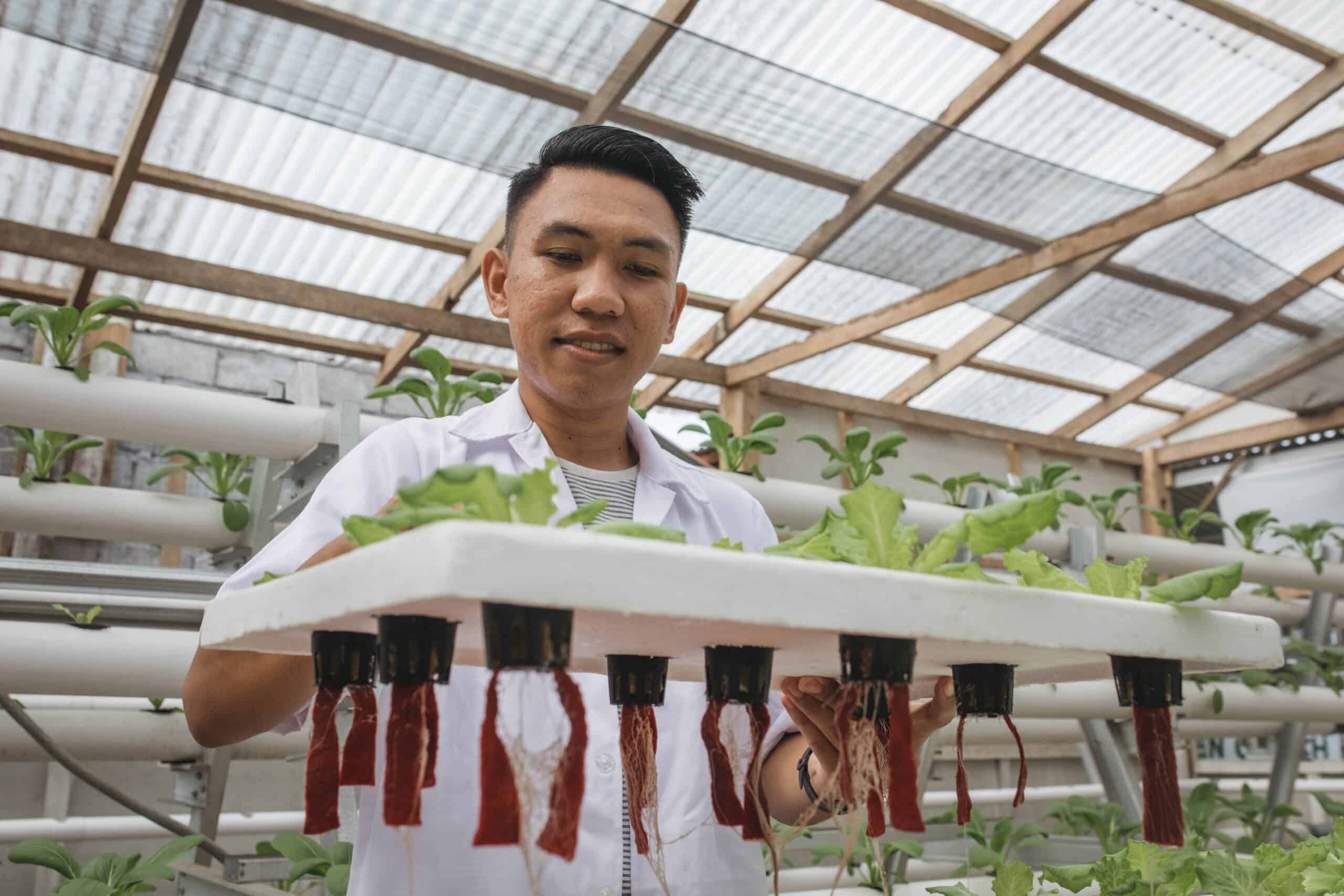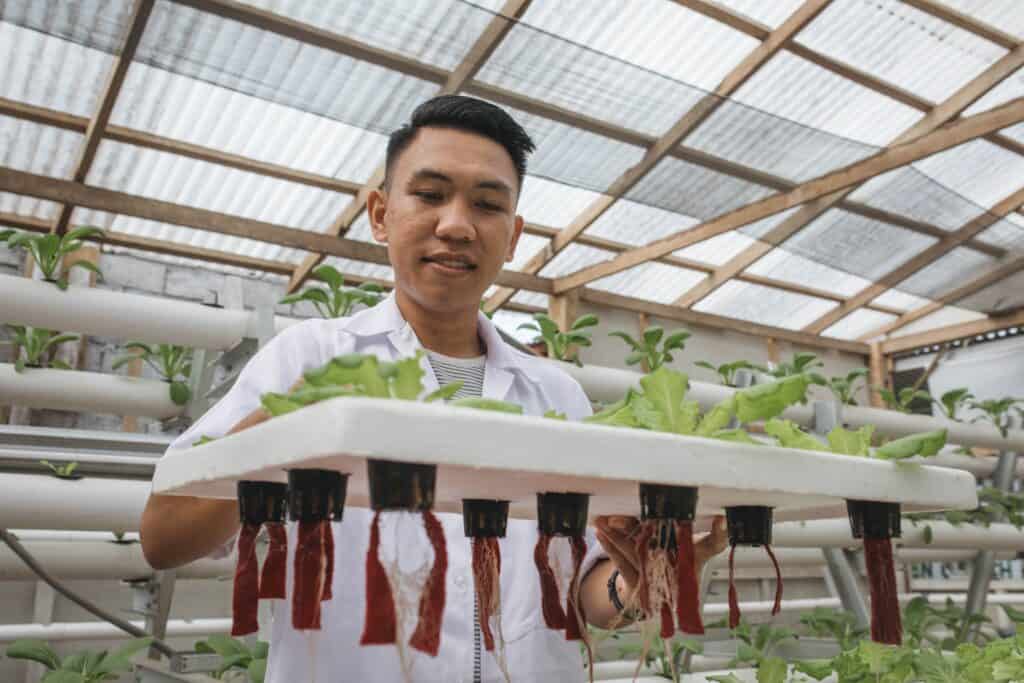
Children in poverty grow up with so many painful circumstances that breaking free from them often requires healing from the past. Whether they’re mending broken relationships or overcoming feelings of insignificance, children grow in confidence when they’re rooted in hope and love.
For Frizky, a 24-year-old Compassion alumnus, his story of innovation grew from the soil of challenge and disappointment.
Wanting to Be Loved
Abandoned by his parents at a young age, Frizky was raised by his grandparents. “I felt a little bit angry and heartbroken by my situation,” he says.
All kids need their parents for more than tying shoelaces or preparing meals, but children in poverty face so much instability that they especially need parents to remind them of who they are and why they matter. Children grow in confidence when they can rely on the encouragement of their roots.
But without the safety and stability of his parents, Frizky felt unsure about himself and his future. With his grandparents struggling to afford an education or nutritious food for him, Frizky was registered in the Compassion program and sponsored when he was 8 years old.
It was at the center that Frizky learned his grandparents weren’t his actual parents.
“When I found out that I did not have a complete family, I considered myself worthless,” he says.
Sherly, the center director, witnessed his pain firsthand. “Frizky felt inferior and insecure,” she says. “He was thirsty for his parents’ love.”
Living in poverty without his parents, Frizky hit rock bottom at the age of 12. “I closed myself off, kept things to myself and did not want to share with other people,” he says. Frizky envied other children and felt they had an unfair advantage in life.
“After I learned the truth [about my parents], I honestly felt jealous of my friends who have complete parents, [but] I kept holding on to my belief that God had plans for me,” Frizky says.
Overcoming Unforgiveness at the Compassion Center
At the Compassion center, the love of God and care of the church nurtured Frizky. Compassion staff mentored and befriended him “through thick and thin,” says Sherly. Frizky received encouragement for his faith, support for his nutritional and educational needs and connections to regular medical checkups.
The center quickly became his second home. “I love to be at the center,” he says. “I always feel I can be myself because all the tutors and center staff listen when I talk and share.”
The attention and affection Frizky received at the center shaped his character as he grew in Christ. It was what inspired him to overcome what he saw as his biggest barrier to growth: unforgiveness.
“I learned how children should honor their parents,” says Frizky, “[and] it made me think about the consequences of my future if I do not forgive [my parents].”
Over the course of a year, alongside Compassion mentors, Frizky forgave his parents for their abandonment. “He learned that living in God means forgiving others,” says Sherly.
The decision to forgive helped Frizky overcome insecurity. He accepted the hardships of his past and opened his heart to the affirmation and encouragement of his community.
“While I felt something was missing when I was a child,” Frizky says, “I believe getting a sponsor was God’s plan. God replaced the missing piece of my childhood with a sponsor.”
Frizky transformed from someone who lacked confidence to someone who could build healthy relationships and step into leadership roles at the church. Although his support system was different from other families, it gave him the safety, stability and love he needed to thrive.
“He is independent and no longer feels inferior,” says Sherly, the center director. “He wants to share what he has now with the hope that other children do not feel what he did as a child.”
“He wants to be a blessing,” says Sherly.
Finding Roots of a Different Kind
Through his teen years, Frizky grew into a confident, hardworking young man and went to university to study agriculture. “I love challenges,” says Frizky. “I’m intrigued by new things that I’ve never known.”
And when it came time to consider his final thesis in 2020, he suggested an innovation at his “second home,” the Compassion center. His idea would put into practice what he’d learned at university about agriculture and what he’d learned at the center about leadership.
“I created a proposal for the greenhouse construction with hydroponics cultivation inside it,” says Frizky.
Growing Hope Through Hydroponics
Hydroponics is a way to grow plants in water instead of soil. A hydroponic garden is useful for growing vegetables in urban neighborhoods like Frizky’s, where farming space is limited and fresh produce is hard to come by. The greenhouse would not only educate Compassion participants on cultivation and entrepreneurship, but it would provide essential food to the community.
To Frizky’s joy, the approval for Compassion funding went through, and he worked alongside 19 teenagers to build the greenhouse, develop the hydroponic garden and plant vegetables.
In August 2020, Frizky and his friends harvested the vegetables for the first time, selling their crop to the local community and exceeding the center’s expectations.
As he graduated college, Frizky trained successors to replace him in managing the hydroponic garden, which is still active today. The teens at the Compassion center now sell these vegetables under their own label, and they’re permanent suppliers for local supermarkets.
“The garden will continue to be developed as a learning tool for our children at the center, and the successors who Frizky has trained will also train their juniors,” says Sherly.
Frizky has become a blessing. He’s created a nutritious food source for his community and a training program for Compassion youths. As younger students at the center learn to garden from Frizky and his successors, they’re also learning important business and life skills that will enable them to be self-sufficient adults in the future.
Through this incredible greenhouse, they’re sprouting the roots they need to grow up free from poverty.
Frizky’s strong mind is inspiring and providing for others. “I made the [hydroponics] program … as a token of gratitude to the Compassion center,” says Frizky.
“My life goal is to become a blessing,” says Frizky.
Planting New Seeds
Frizky still stops by the hydroponic garden to check on progress and support the team. Frizky also works as a teacher, cultivating young minds. “My main goal is to make younger generations love their environments,” says Frizky. “I would like to encourage my friends to be innovative … to create new things.”
Now, when Frizky looks back over the challenges of his life, he sees how God was working and feels grateful for his presence. “I truly believe God has enabled me to go through all the hardships,” he says. “My life would not have been the same if it had not been filled with Christ.”
Frizky has grown confident even with incomplete family roots. As he looks over the hydroponics in the greenhouse he helped build, he says:
“As for me, my favorite part of plants is their roots.”
Roots enable growth and progress. When they’re nurtured with care, even the damaged ones can be restored and thrive. Frizky has found his roots in Christ and in his Compassion community. As a result, he is changing the future by planting new seeds.
“But blessed is the one who trusts in the Lord, whose confidence is in him. They will be like a tree planted by the water that sends out its roots by the stream. It does not fear when heat comes; its leaves are always green. It has no worries in a year of drought and never fails to bear fruit.” — Jeremiah 17:7-8, NIV
Empower Youth to Break the Cycle of Poverty
Many young people living in poverty face overwhelming challenges when preparing for the future. Through the Youth Development Program, you can help provide training and education for youth, unlocking their God-given potential to thrive.

